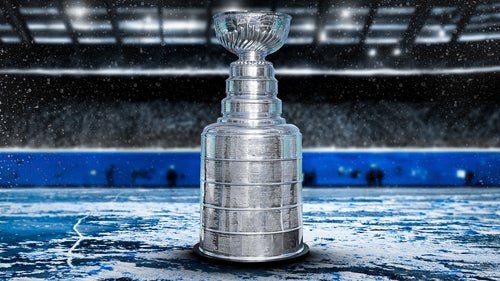





































































































































NHL, Caps help out hockey program for wounded vets
After he was wounded in Iraq, Joseph Bowser was told he could keep his right leg or have it amputated. If it were amputated, he was told, he would be able to keep doing all things he used to do.
The first thing that came to his mind was ice hockey.
''So,'' Bowser said, ''I guess I'm the only guy you're going to meet who had their leg amputated so I could play hockey.''
The retired Army sergeant stood proud on his prosthetic left leg Thursday as the NHL, the Washington Capitals and Verizon Wireless donated equipment to the USA Warriors Ice Hockey Program.
After a ceremonial faceoff featuring Hall of Fame goaltender Grant Fuhr and Capitals assistant coach Bob Woods, about two dozen wounded veterans from Walter Reed Army Medical Center took to the ice for a clinic. There are 40 service members from the Army and Marines in the program, including 15 who play sled hockey.
''A lot of them never played hockey before,'' said Bob Banach, president of the program. ''But once they get out there, they realize how much fun they have. It's all about the camaraderie.''
Bowser has been playing since he was a child on ponds and creeks in Toledo, Ohio. He was wounded from shrapnel from a rocket that landed inside Camp Anaconda north of Baghdad in April 2004.
A week later he was at Walter Reed and was told his left foot was ''a drop foot'' - essentially useless. It would require a brace and cause him pain the rest of his life. The alternative was to amputate just below the knee.
''I said I wanted to play hockey,'' he said.
A year later, he was back on the ice for the first time.
''I went out there and had an absolute ball,'' Bowser said. ''Who would have ever thought? I just passed the puck around, having a good time. I would never guessed in a million years that I would be right here. To me, hockey season's all year long, so my wife calls herself a hockey widow. But I told her, when I'm on the ice, that's when I feel normal. I feel like everybody else. I play with two-legged people all the time.''
The 50-year-old Bowser now lives near Baltimore and plays in various local leagues, and some of his opponents don't realize he has a disability. When he got knocked over in a game, he asked someone to help twist his leg back into place. The player wouldn't touch it because he thought he had broken Bowser's leg - not realizing it was a prosthetic.
''I must be pretty good,'' Bowser said with a smile, ''for them not to even know.''
Bowser helped launch the Walter Reed hockey program, which began in earnest about 2 1/2 years ago. As with other sports programs for wounded veterans, the purpose is to get the patients out of the hospital and boost their spirits.
''Anything we can do to get them out and active and be a part of the team and back out in the world and back out into society,'' Banach said. ''It's a whole new skill for them that they didn't realize they can do, because a lot for them were never even exposed to the game. But it really helps them out, not just for hockey, but to get out and forget about the hospital setting.''
Also offering his support was Rep. Mike Quigley, a co-chairman of the newly formed Congressional Hockey Caucus - a group of 14 or so lawmakers who share a passion for the sport. The Illinois Democrat naturally bragged about the Chicago Blackhawks' Stanley Cup title, then went onto the rink in his shirt and tie and wristed a few shots on goal.
''I can't begin to understand what you've experienced and what you've done,'' Quigley said while thanking the veterans for their service. ''I can understand how you still want to play hockey.''


